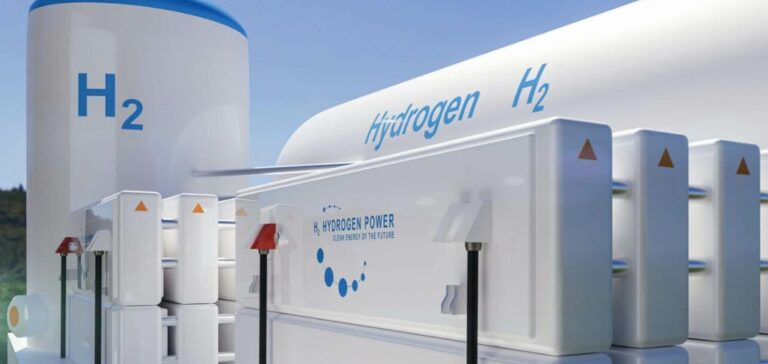On Thursday in Alsace, France’s Minister for Energy Transition, Agnès Pannier-Runacher, announced a €4 billion support package for the French hydrogen industry.
France invests 4 billion euros in green hydrogen for industry, to support decarbonization
This scheme “aims to support manufacturers in purchasing electrolyzers and producing carbon-free hydrogen at a competitive cost, since we will offset part of the cost between the price of carbon-free hydrogen and the price of hydrogen made from fossil fuels”, declared the Minister following a visit to the John Cockerill electrolyzer plant in Aspach-Michelbach (Haut-Rhin).
“This hydrogen will be used in various heavy industrial processes, to avoid using fossil fuels, whether to produce steel, aluminum or fertilizers,” she added.
The John Cockerill plant in Aspach-Michelbach “illustrates our policy of reindustrialization and decarbonization”, boasted the Minister, since “it is a winning site in the industrial support schemes for decarbonization that we have launched since 2020”.
In 2020, the French government launched a vast €9 billion plan to support the hydrogen industry, from which the €4 billion package announced on Thursday was drawn. The John Cockerill plant in Aspach-Michelbach had received almost 100 million euros in subsidies.
“None of this would exist without the public authorities and the support of the state and local authorities,” said Raphael Tilot, Managing Director of John Cockerill Hydrogen.
“The announcement (of the 4 billion euro plan) is very positive, it’s a system that’s easy to understand, the criteria are completely comprehensible to manufacturers, so we’re very pleased with it,” he added.
“Europe is moving forward in parallel with what’s happening elsewhere in the world, where things are sometimes moving even faster, when you look at what’s happening in Northern Europe or China. So France and Europe have to keep going, if possible even faster.
France plans to become world leader in green hydrogen with a “giga-factory” plant
The plant is due to go into production at the end of the year, and after a three-year ramp-up phase, aims to produce 1,000 megawatts (1 gigawatt) of electrolysers a year, making it a “giga-factory”.
The plant will eventually take on almost 300 employees, with around a third already recruited. The 4 billion euro envelope will be used to launch calls for tender every year for the next four years, in order to develop low-carbon hydrogen producers using electrolyzers, according to the Minister’s office.
A decree is due to be published shortly to set the terms and conditions of the subsidies that will be granted to manufacturers wishing to decarbonize their production using hydrogen (as a replacement for gas, for example),
both to cover part of the purchase price of the electrolyser and to support the long-term operating costs of these facilities
“since today the production of decarbonated hydrogen is more expensive than that of fossil hydrogen”.
“We are agnostic on the nature of the electricity that will be fed into the electrolyser, as long as it is low-carbon, it can be nuclear or renewable, it’s up to the project owners to decide,” added the firm.






















